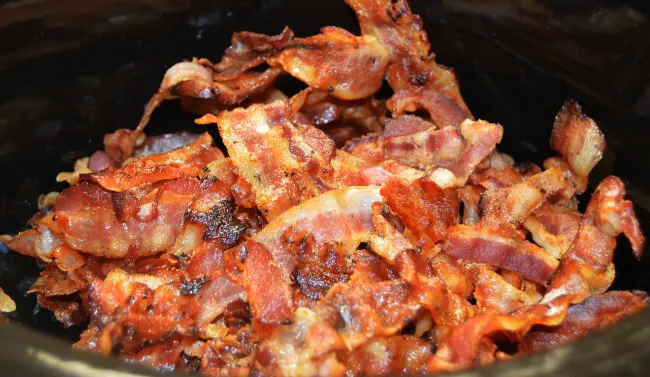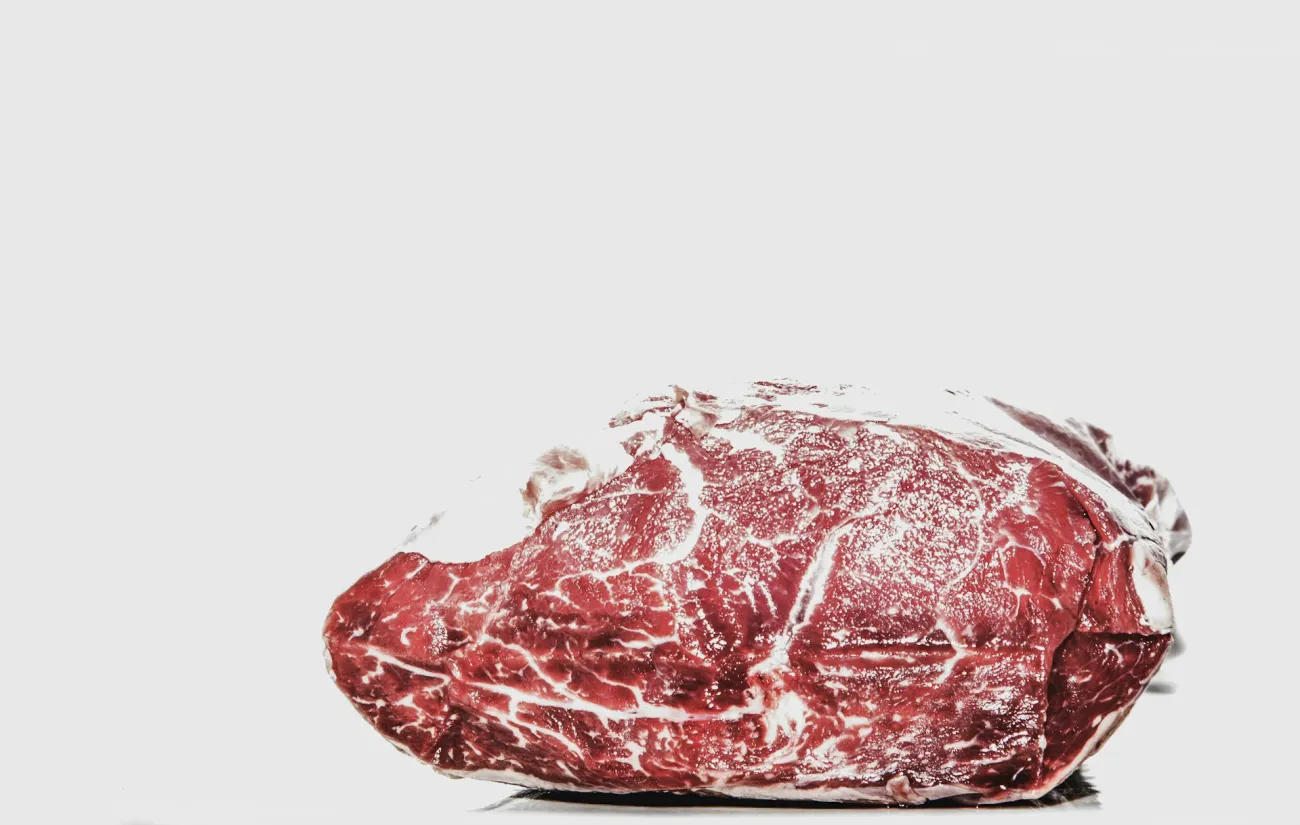This paper reviews data from the UK Biobank study and finds that higher consumption of red meat and alcohol are associated with a higher risk of colorectal (bowel) cancer, while higher consumption of fibre from bread or breakfast cereals is associated with a lower risk.

Out of 475,581 participants who did not have cancer (excluding non-melanoma skin cancer) at the start of the study, 2609 cases of colorectal cancer occurred over an average of 5.7 years. An increase in consumption of 25 g per day of processed meat (around one rasher of bacon) was associated with a 19% increase in risk of colorectal cancer. For red meat, each 50 g/day increase in consumption (roughly one thick slice of roast beef) was associated with an 18% higher risk. For alcohol, each 10 g/day increase in consumption (around half a pint of beer) was linked to an 8% increase in risk.
According to the BBC’s coverage of the paper, 5,400 of approximately 42,000 cases of bowel cancer seen annually in the UK could be prevented if people did not consume any processed meat. For comparison, smoking causes approximately 54,000 cases of cancer in the UK each year.
The authors note that people who were in the category with the highest red and processed meat consumption ate, on average, 76 g of red and processed meat per day and had a 20% higher risk of colorectal cancer than people who ate only 21 g per day. Nevertheless, the highest consuming group meet (on average) the UK government’s recommendation of limiting red and processed meat consumption to no more than 90 g per day.
See media coverage here:
- Eating just one slice of bacon a day linked to higher risk of colorectal cancer, says study (CNN)
- A rasher of bacon a day 'ups cancer risk' (BBC)
- Even moderate intake of red meat raises cancer risk, study finds (Guardian)
- Bacon, salami and sausages: how does processed meat cause cancer and how much matters? (Cancer Research UK)
Abstract
Background
Most of the previous studies on diet and colorectal cancer were based on diets consumed during the 1990s.
Methods
We used Cox-regression models to estimate adjusted hazard ratios for colorectal cancer by dietary factors in the UK Biobank study. Men and women aged 40–69 years at recruitment (2006–10) reported their diet on a short food-frequency questionnaire (n = 475 581). Dietary intakes were re-measured in a large sub-sample (n = 175 402) who completed an online 24-hour dietary assessment during follow-up. Trends in risk across the baseline categories were calculated by assigning re-measured intakes to allow for measurement error and changes in intake over time.
Results
During an average of 5.7 years of follow-up, 2609 cases of colorectal cancer occurred. Participants who reported consuming an average of 76 g/day of red and processed meat compared with 21 g/day had a 20% [95% confidence interval (CI): 4–37] higher risk of colorectal cancer. Participants in the highest fifth of intake of fibre from bread and breakfast cereals had a 14% (95% CI: 2–24) lower risk of colorectal cancer. Alcohol was associated with an 8% (95% CI: 4–12) higher risk per 10 g/day higher intake. Fish, poultry, cheese, fruit, vegetables, tea and coffee were not associated with colorectal-cancer risk.
Conclusions
Consumption of red and processed meat at an average level of 76 g/d that meets the current UK government recommendation (≤90 g/day) was associated with an increased risk of colorectal cancer. Alcohol was also associated with an increased risk of colorectal cancer, whereas fibre from bread and breakfast cereals was associated with a reduced risk.
Reference
Bradbury, K.E., Murphy, N. and Key, T.J., 2019. Diet and colorectal cancer in UK Biobank: a prospective study. International journal of epidemiology, dyz064.
Read the full paper here. See also the Foodsource chapter What is a healthy sustainable eating pattern?




Comments (0)